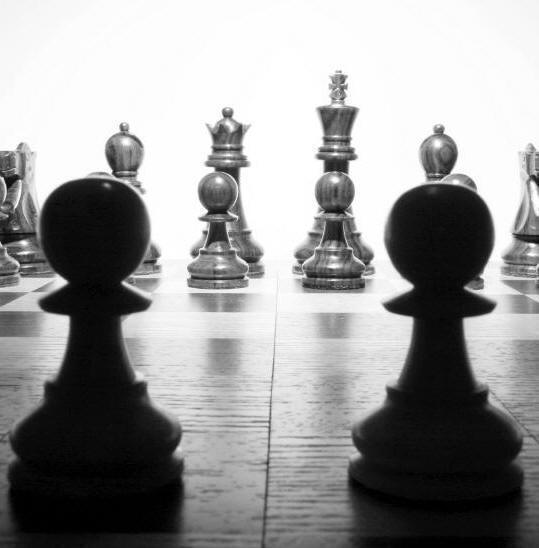 Some of my fondest memories are of playing chess with my father. He taught me many things and some of the most valuable lessons occurred around an 8 square x 8 square chessboard.
Some of my fondest memories are of playing chess with my father. He taught me many things and some of the most valuable lessons occurred around an 8 square x 8 square chessboard.
On defense, he taught me to consider each of my major pieces one by one. How was my knight vulnerable? What could attack it, threaten it, force it back, take it? If not in one move, then in two or three? How should I respond? What was my plan? What supported my knight, what covered it, where to retreat if need be?
Repeat the process for the other knight, my bishops, my rooks, my queen and, most important, for my king.
Repeat the process on offense: What could my knight attack? If not in one move, then in two or three? How were those pieces supported? Could I attack the support and then take the piece? Then repeat the process for the other pieces I had on the board.
Then I would flip the board around in my mind and pretend I was my opponent. How would I attack my own position? What would I do if I were him? What was his most likely move? How should I respond? How would he respond to my response?
We frequently played “clock chess.” This taught me the discipline of using my opponent’s time to plot my moves. If I anticipated correctly, I could move quickly and leave him under time pressure, an advantage that I could build incrementally.
From chess I learned the balance of tactics and strategy, short-term vs. long-term. Every move was an investment, so have a plan. Strategically interlocking positions based on a plan were much stronger in the long run than flashy, splashy tactics that lacked an overall design. Yet even the best strategy can be undermined by chance, careless play, or thoughtless oversight. At times even a brilliant plan should be set aside to take advantage of significant targets of opportunity.
I was a strategic thinker long before I earned my M.B.A. My thoughts ranged far ahead on evenings and weekends even as my regular working hours were consumed by the day-to-day minutia of running and expanding a business. Risk analysis, balancing of risk and reward, looking for threats, was second nature to me.
Sometimes I find myself wishing more people on Wall Street played chess.


0 Comments